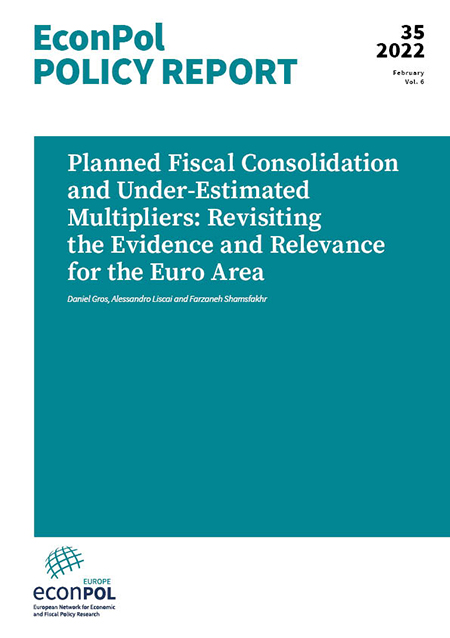Planned Fiscal Consolidation and Under-Estimated Multipliers: Revisiting the Evidence and Relevance for the Euro Area
The Great Financial Crisis caused a deep recession and led to very large public deficits. When financial market tensions erupted, many European countries were forced to reduce their deficits. This ‘austerity’ is often credited with the disappointingly slow recovery during the years after the financial crisis. One reason for such a slow recovery could have been that the impact of a reduction in the fiscal deficits is larger than anticipated during a recession, especially if it is accompanied by financial market tensions. At the height of the financial crisis and in its immediate aftermath, this might not have been properly taken into account.
Blanchard and Leigh (2013) pioneered a novel approach which suggests that one can recover the under-estimation of fiscal policy multipliers by examining the link between surprises in output growth and planned fiscal consolidation.
In this paper, we provide an analytical framework for this approach, which clearly shows that one cannot just explain output surprises with planned fiscal consolidation. One also has to take into account actual fiscal consolidations (which are sometimes not highly correlated with the planned fiscal adjustments).
We also replicate the Blanchard and Leigh approach using the (spring) forecasts released by the European Commission between 2004 and 2019, finding that fiscal multipliers were higher than assumed in forecasts mainly in one particular crisis year, i.e. 2011, but the best estimate of the true multiplier never exceeds one.
We conclude that the narrative whereby austerity had large, and not properly anticipated negative effects, on output growth is simply not validated by the available data.
Daniel Gros, Alessandro Liscai and Farzaneh Shamsfakhr: “Planned Fiscal Consolidation and Under-Estimated Multipliers: Revisiting the Evidence and Relevance for the Euro Area”, EconPol Policy Report 35, February 2022.
